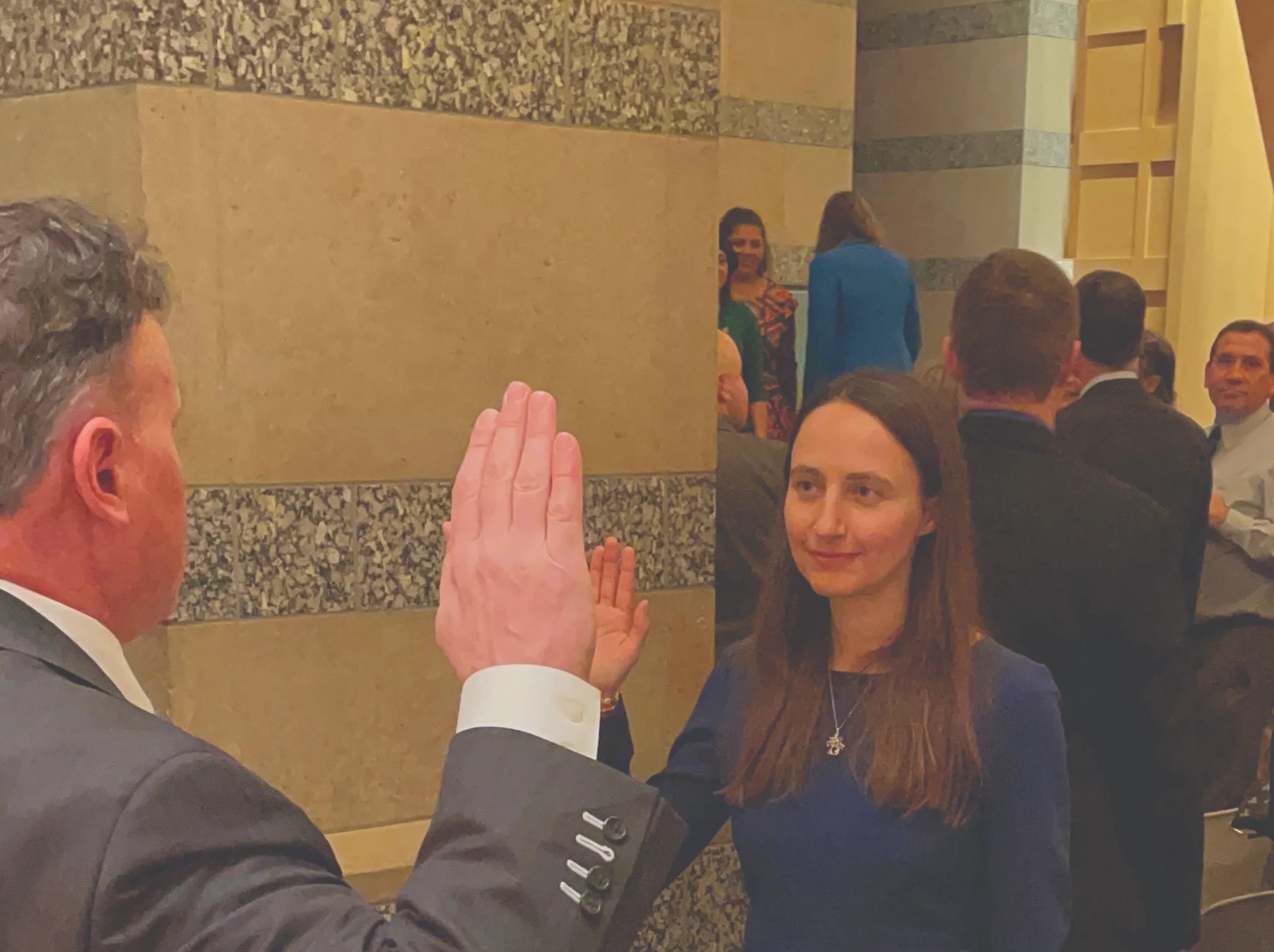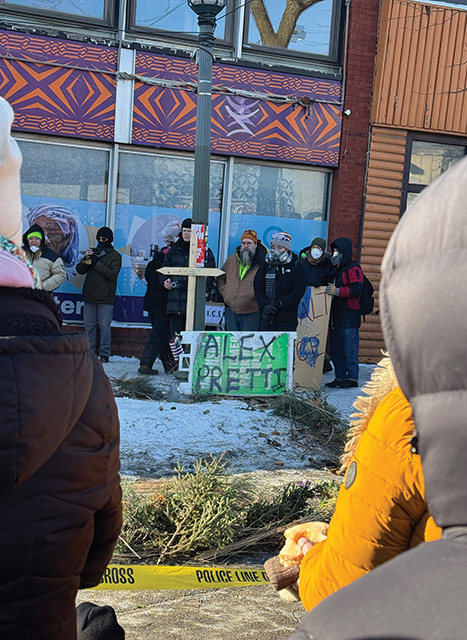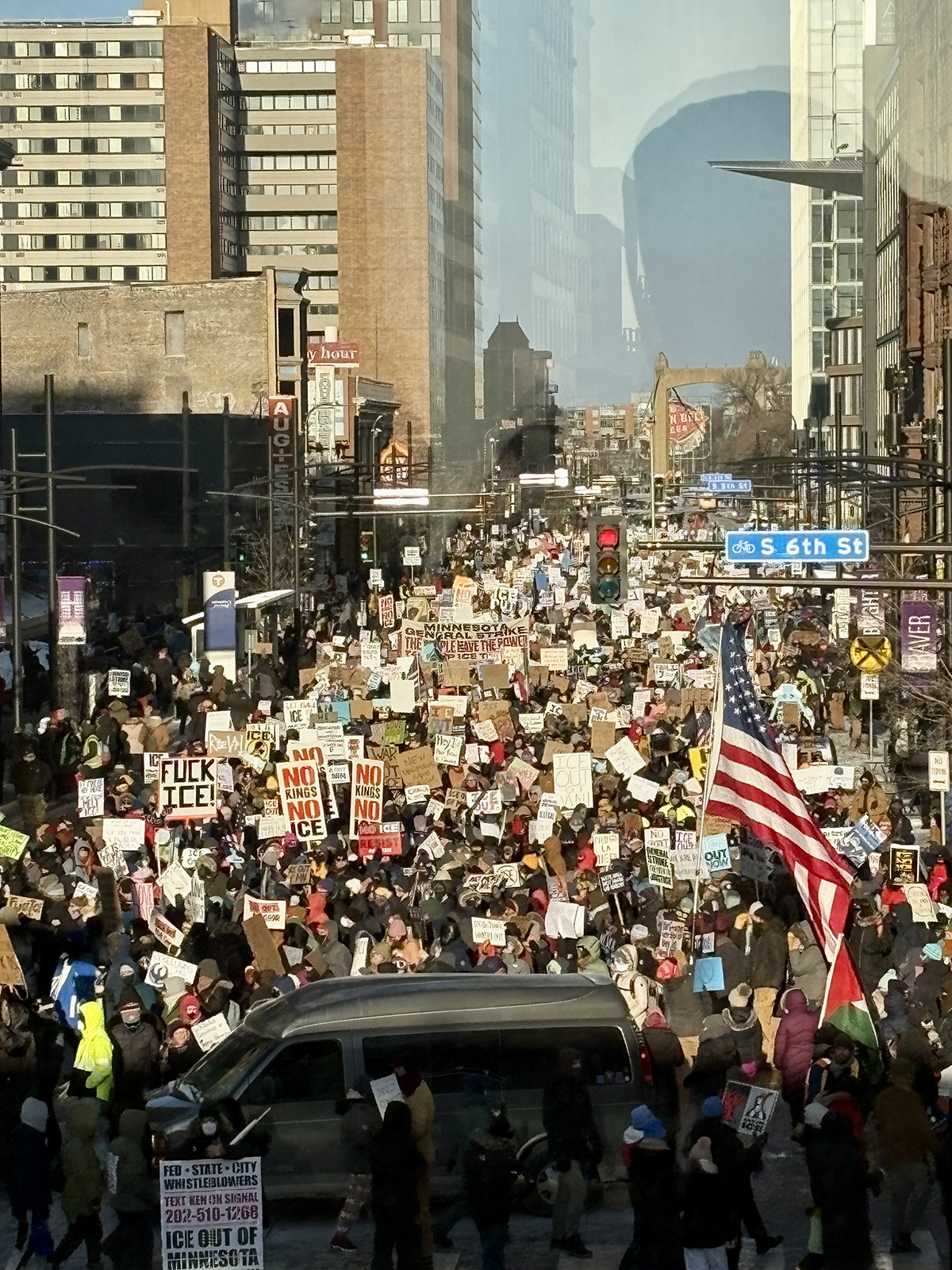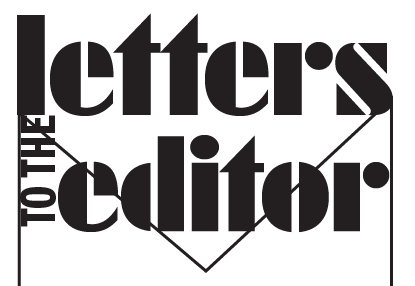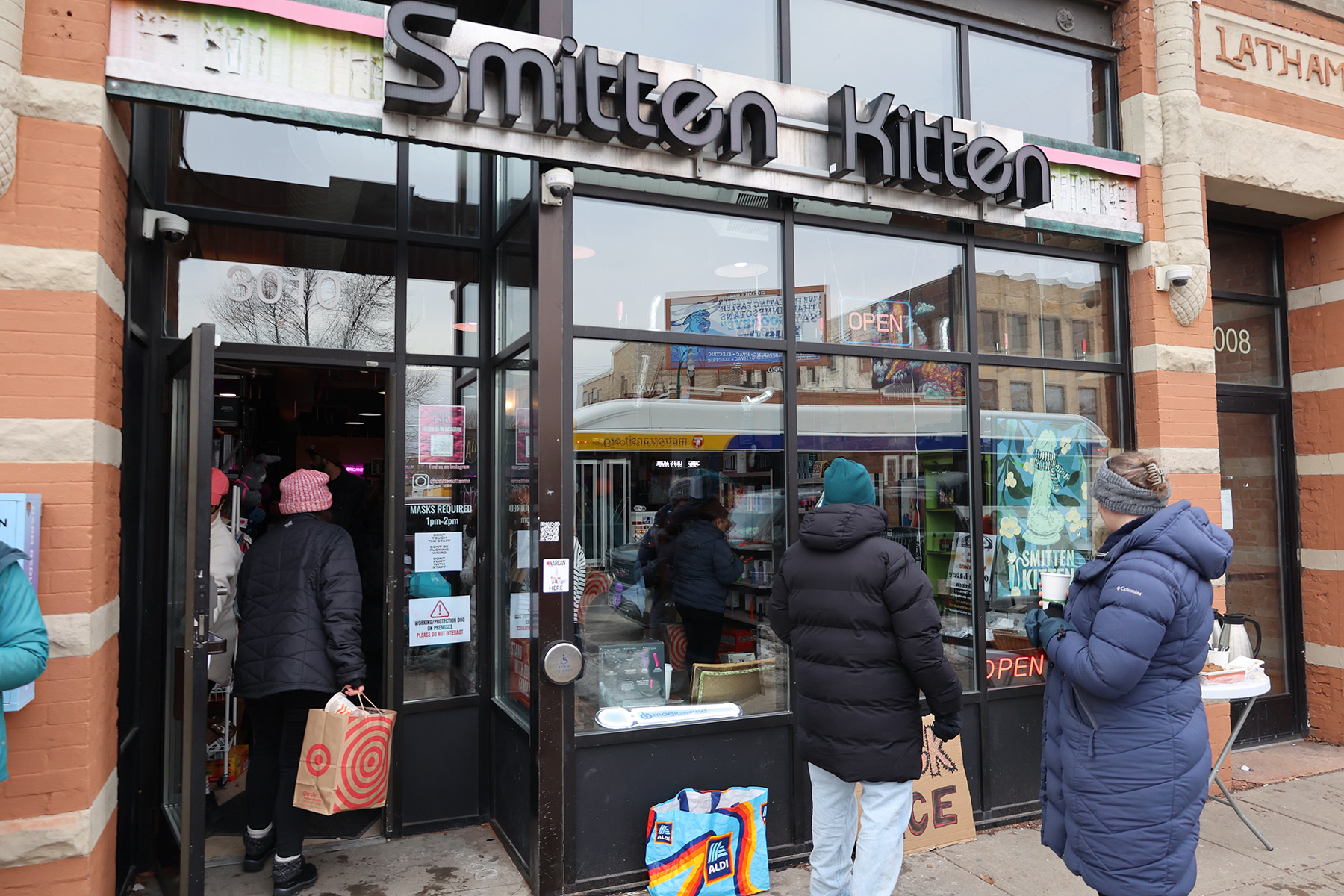Terry White: Katie, thank you for sitting down with me today. Can you start by sharing a bit about District 61A and your background?
Rep. Katie Jones: Absolutely, Terry. District 61A covers the southern part of downtown Minneapolis, the Harrison neighborhood, Bryn Mawr, the Wedge and the Lakes neighborhoods like East Isles and Kenwood. I’m originally from Lebanon, Indiana, where my family ran small businesses. I moved to Minnesota after meeting my husband at a summer camp in Bemidji. We've lived in the Wedge neighborhood for over a decade.
TW: This is your first term in office. What are your expectations? What are your priorities?
KJ: I’m passionate about representing the vibrant voices of our district and leveraging its wealth of ideas to build a stronger Minnesota. Downtown is the economic engine of the state. Its comeback will help the entire state. I also want to focus on small business grants for corridors under reconstruction, like Hennepin Avenue. Reconstruction is an area I have spoken with GOP colleagues about because towns like Montevideo also have corridors that are 60 to 80 years old.
TW: What role does the state play in economic development?
KJ: There are some areas that require a regional focus, such as providing incentives for converting downtown office buildings into residential. When it comes to small businesses and helping them rebound after construction, the state has the biggest purse. We can carve out state aid to help them.
TW: Do you expect to be going to the Capitol given that the DFL is planning to boycott?
KJ: We’ve gotten support on how the DFL is handling this situation. The DFL caucus had negotiated a power sharing agreement. The open seat is clearly a DFL seat. So, the GOP should not attempt to turn a two-week majority into a two-year power grab. The House will end up with a tie.
TW: Changing to a completely different topic, you built a strawbale house. Why that method?
KJ: Yes! My husband and I built a strawbale home right here in the district. We care deeply about sustainability and were disappointed with the amount of fossil fuel-based materials in conventional construction. I’ve worked in energy and so has my husband. Strawbale offers excellent insulation, reduces our carbon footprint and aligns with our environmental values.
TW: How does your environmental focus influence your stance on public transit and urban development?
KJ: We really care about climate. Transit and housing density are key for climate resilience. I support compact, walkable communities to reduce sprawl and protect farmland. Expanding transit options while improving efficiency, like converting office spaces into residential use, also builds safer, livable neighborhoods. To encourage more housing, laws need to change throughout the state to allow for more density and things like accessory dwelling units (ADU).
TW: How can the state impact public safety? Is economic development part of the solution?
KJ: Local response does come from the city, but the state has an oversight role. With consent decrees, I think we can bring in people to testify about whether they are being fulfilled. We can also look at the power dynamics of the police union. Doctors also provide public safety, and they do not have a union. I think it’s worth having the conversation about whether the police union has a disproportionate amount of power. The community must be able to hold them accountable. There are some statutes I want to look at to see about rebalancing the power between the union and the community. Economic development is 100% part of the solution. We need more eyes out and people walking on the streets. That’s where adaptive reuse or conversions of office buildings to residential should be pursued. If we can bring residents to downtown, with more eyes on the street, it will incentivize more businesses to come in.
TW: The Met Council and the Green Line extension have been controversial and frustrating for many. What’s your take?
KJ: I will say, we want a functioning transit system. The Green Line’s delays and cost overruns reveal governance issues. I support reforms ensuring projects are better planned and executed.
Handing implementation to MnDOT instead of the Met Council seems like a step toward better accountability.
TW: Will it ever be finished?
KJ: Yes, it will. The date I’ve heard is in 2027.
TW: Some people have suggested the Met Council should be an elected board. Where do you stand?
KJ: I am open to a conversation about the structure of the Met Council. We need regional planning, but the board members should have qualifications in transit, wastewater management, parks, or urban planning. It’s also worth looking at possibly the Met Council does the planning, but MNDOT does the implementation.
TW: What opportunities for bipartisan collaboration do you see? For example, will there be a bonding bill? Given how things are starting, will anything get done in this session?
KJ: I think once we get going in February things will get done. Everyone has items in their districts they want in the bonding bill. Housing and infrastructure are areas where I’ve had positive conversations with GOP colleagues. We all want better housing options, childcare support, and transit. We all want to move things forward for the State of Minnesota.
TW: There was a big shift toward the GOP in this last election, why do you think that happened?
KJ: What happened in Minnesota reflects the national sentiment. I still think the DFL is the par ty of working families. That is evidenced by the work we have done in the last two years, such as paid family leave and free school lunches. I think DFL representatives can succeed by staying in touch with their constituents, listening, and communicating what they are doing.
